On March 11, 1939, one of the favorite poets in Abkhazia, Taif Adzhba, was born. On October 9, 1992, he and few other Abkhazians were taken away in an unknown direction by Georgian guards. The memory of him among the people is alive, just as his sincere lines are alive and eternally new.
Arifa Kapba
His lines are called poems of “divine origin.” His poetic style and musicality of works have long earned him the love and respect of readers. But his fate was tragic.
Both mathematician and philologist
On March 11, 1939, the boy Taif was born in a large large family of Shaadat Adzhba in Achandara.
“For some reason everyone in this simple Abkhaz family was very fond of mathematics,” says a relative of the poet (wife’s sister - ed.) and an admirer of his talent Eleonora Kogonia. “Brothers, sisters, they all studied well, and Taif himself after school generally intended to enter the Physics and Mathematics Faculty of the Sukhum State Pedagogical Institute (SSPI).”
Adzhba did not succeed in entering the Physics and Mathematics Department, and he was taken to the army. Upon returning from there in 1962, Taif entered the German department of the philological faculty of the Siberian State Pedagogical Institute, where he mastered the German language well, which helped him later to read German poets in the original language and translate. After studying at the institute, he began working as an editor at the “Alashara” publishing house (newspaper and magazine publishing house of the Abkhaz SSR - ed.).
Poems were first published during his student days. The first poetry collection “Poems” was released in 1968. “The poet adhered to the tradition of classical verse; his works are non-declarative, unobtrusive. He reflects on the enduring values of human existence. A characteristic feature of his lyrics is musicality, the beauty of a syllable,” Dr. of Philology Vyacheslav Biguaa writes about Taif Adzhba.
“Blessing” and the poet's intuition
In 1979, a collection of selected works by Adzhba “Blessing” was published, which included the best works of the poet. Throughout his poetic life, Taif grew and developed, in 1983-1985 he studied in Moscow at the highest literary courses at the Gorky Literary Institute.
In his work a significant place is occupied by poems for children and young people.
“Taif Adzhba can rightfully be considered a classic of Abkhaz children's literature, who wrote many poems and fairy tales-poems that have become widely known among children and young people of preschool and school age,” writes candidate of philological sciences Valentin Kogonia.
Many of Taif Adzhba’s poems contain a kind of prophecy, there is a subtle and precise intuition of the author, which is usually characteristic of great and talented poets. So, Eleonora Kogonia notes that the poem “Our Life”, written long before the start of the war in 1991, clearly shows that “Taif’s intuition let him know even then what might be today.” Here is an excerpt from this poem, written, like all the works of the poet, in the Abkhaz language, translated into Russian (translated by Viktor Lapshin - ed.):
We must break free from the stuffy cage of gold,
In order not to remain forever absurd fiction, a dream.
We were born for the will of the free, our road is without end,
The plot of adventurous restless creator is small for us.
We dare always and everywhere, and darkness will not frighten us.
While we are alive (if alive), we will live forever the only way.
“Not all the works of Taif can be translated”
Taif Adzhba was also translating into the Abkhaz the poetry of other poets - Pushkin, Tyutchev, Lermontov, Blok. The poems of the poet himself were also translated into other languages. One of the most successful translations of the poet’s poems from Abkhaz into Russian was made by the young translator Alina Azhiba. Here are the lines:
The sun is wonderful at sunset,
Dumping gold rays.
At sunset, at sunset
The sun is more beautiful and lovely.
Is it easy: since dawn,
Every day for everyone to burn?
And at sunset, leaving everything,
Melting, melting, disappear? ..
But without a shadow of regret
So beautiful is his face:
Will give inspiration at noon,
Affection - in this moment.
Who else can do this,
Not sad about yourself?
Who is willing to bow down yet
To such a difficult fate?
The sun is wonderful at sunset,
Dumping gold rays.
At sunset, at sunset
Sadness in the sun is hot.
“Not all the works of Taif can be translated,” the translator comments on his work, “and of course, in poetry translations, much is inevitably lost. In the translation, which my friends considered the most successful, I see a lot of weaknesses. But I tried to preserve both the meaning and the rhythm of the original, the spirit of Taif.”
Alina Azhiba admits that Taif Adzhba is one of her favorite Abkhaz lyricists, “a very deep, sincere and touching poet.” He made a great contribution to the development of the artistic character of the Abkhaz literary language, the translator believes.
“Like most children of my generation, I grew up with his poems,” she says. “When I grew up, I opened him as a poet for myself personally. Despite the tragic fate that waited for Taif, and the difficult historical time in which he lived, I believe that he was a happy man, happy in his work. Good and light come from all his poems, and even in the saddest lines the light of distant hope shines.”
Imposing and “non-opportunistic”
Eleonora Kogonia recalls what a man the poet was in life, and her first meeting with him. “I first met Taif when I was still a child,” she says. “In the fifth grade, I got sick, and my sister just recently married Taif. He came home, not knowing that I was in their apartment. A man comes to his house, so thin, in a top hat, an interesting man, and sees: there lies a girl. He began to talk with me, but I did not answer him, I was embarrassed. He tried all the languages of the Soviet Union, but I was still silent.” Kogonia, the same girl, at the time of their meeting, was already reading his poems. Moreover, she once saw him in a village club in his native village of Kutol, where he spoke. She also knew songs based on his poems: they were eagerly sang at her school.
Eleonora Kogonia notes that she has always considered Taif Adzhba a “non-opportunistic” poet.
“He lived in the Soviet era, but at the same time there are no poems in the works of Taif for the Soviet authorities, for the system,” she says. “He did not write on request. I think he did not consider this poetry - to write about the party, about the Komsomol. That’s why they didn’t particularly like him. He was not fashionable for the government. He received the Gulia Prize (Dmitry Gulia State Prize - ed.) after he was gone, he was never even presented to its receipt. He was not among the “favorites” of the leadership.
Taif was not engaged in poem, he did not “make” poems, says Kogonia, his poems were more of “divine origin.”
“One can not just compose such poems, it comes from the space. The genius visited him often enough, I think,” she suggests.
“He lived quietly, modestly, wrote poems”
Decency, honesty, self-sufficiency, kindness - these are the main traits of Taif Adzhba.
“He never envied anyone, didn’t speak badly about anyone, didn’t suffer because someone didn’t notice him or he was not interviewed, he would never ask anyone to celebrate his birthday, he wouldn’t ask for an order, he did not ask for anything at all, he lived quietly and modestly for himself, he wrote poetry,” the relative of the poet notes.
Researchers of Taif Adzhba’s creativity witness that in the prewar years, he began to write less, did protracted creative pause.
Well, during the Patriotic War of 1992-1993, when Taif and his wife Rimma remained in Sukhum occupied by the Georgian guardsmen, he, in his own words, “completely abandoned poetry”, obeying the well-known rule: “when guns thunder, the muses are silent”. Instead of poetry, Taif engaged in the fact that every day he wrote down everything that happened in the town, in his life and in the lives of his neighbors, friends, relatives: he began to keep a diary.
“Survive until dawn”: the poet's invaluable diary
Taif Adzhba’s diary was published after the end of the war in 1994 and is entitled the most frequently repeated line from the diary entries: “Survive until dawn.” In fact it is a document containing invaluable information about how terrible that time was (occupation of Sukhum by Georgian troops lasted from the very first days of the war until September 27, 1993 - ed.).
In one of the earliest recordings, Adzhba wrote: “Today’s dramatic position of Abkhazia will someday get its artistic expression. History remains history, it is bad or good - it must be remembered, recorded”.
In the town, where Abkhaz apartments were robbed every day, people were intimidated, where there was less and less bread every day, where there was often no electricity, they turned off the water more often, where they told scary things about what happens outside of Sukhum to spread panic, Taif Adzhba waited all the time for “Vesti” and “Itogi” news programs on Russian TV channels. From these programs he could learn at least something about what is happening in his own country.
“I am very afraid that civil strife will overwhelm us. The nation must show wisdom, unite even more closely. We must consistently fight for our main goal - for independence. According to the situation, you can change tactics. We were not strong enough. Woe to us, if we lose the mind - our ethnic group may disappear. It is necessary to preserve our unity, mutual understanding. We should not blame anyone for our misfortune, we should not fall to the level of mutual distrust, loss of human dignity. At times there is a shootout. Oh, Lord, let us survive till dawn!” writes Taif in his diary.
“I see with my own eyes what the Abkhaz endure”
The two children of Taif Adzhba and Rimma Kogonia, Alice and Alyas, were not in town, they remained in the village of Achandara (poet’s village in the Gudauta district - ed.). In his diary, Taif longs for the fact that it is impossible to see them, worries “if they have warm clothes”, but more often, thoughts about what will happen to the people often come to him: will they annihilate the Abkhaz, will Abkhazia survive?
Meanwhile, it became unbearable in the occupied city.
This is what Adzhba writes in the next entry: “Armed people are driving around in vehicles, both in uniform and without uniform. Until now looting has been going on continuously, there is still a danger to life, the roads are not yet open. I hope that the roads will open until Monday, and it will be possible to move somehow. In these three or four days it became short on bread. Yet there is a churek - we will not die of hunger, and the neighbors sometimes help. It is difficult to trust the information that is broadcast on television. And the goal of the Georgian press is already clear - to morally suppress us. Guardsmen, lynching around the town, today caught the Abkhaz and exchanged them for their hostages.”
Surprisingly, but a fact: even in such a situation, Taif Adzhba did not regret that he remained in the town. The reader of his diary has the feeling that the poet saw this as his mission, his method of struggle and resistance to the enemy - to witness all the atrocities that occurred in the town. “On the one hand, it’s good that I stayed in Sukhum, I see with my own eyes what the Abkhaz living here are suffering. The one who did not see with his own eyes and personally did not bear it all, cannot even imagine how terrible it is,” he writes.
The fate of the poet was such that he himself had to drink this cup to the bottom. On October 9, 1992, he and several other Abkhaz were taken away in an unknown direction by the Georgian guards. The last person, who saw the living poet was his wife Rimma Kogonia. He tried to cheer her up, he said that they would surely take him away “for exchange”. Since then, he is considered missing.
In 2016, the Taif Adzhba Literature Prize was established. His poetry is very popular among young people. He can be considered a truly national poet, although he was not honored with this title during his lifetime.
References:
- Abkhaz biographical dictionary.
- The Diary of Taif Adzhba “Survive until dawn”
- Preface of Valentin Kogonia to Taif Adzhba's Favorite Collection of Poems, 2011
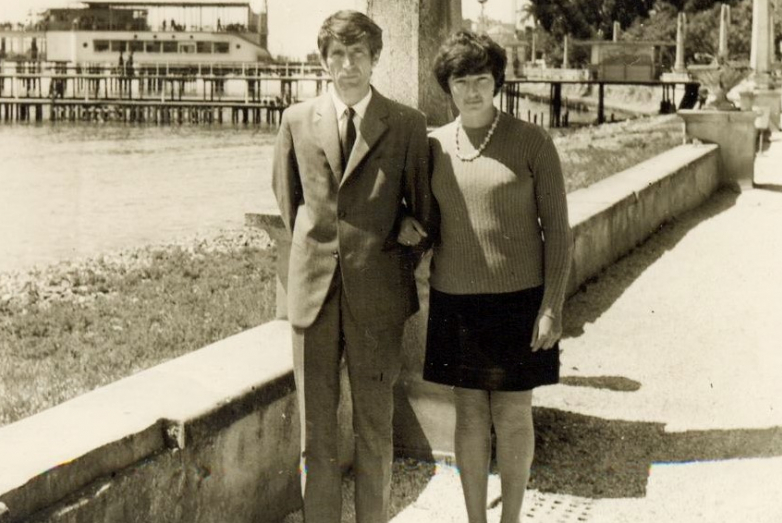
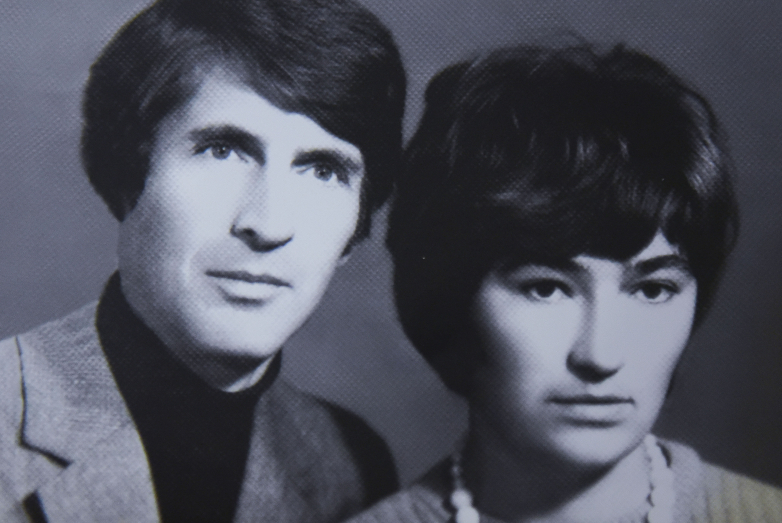
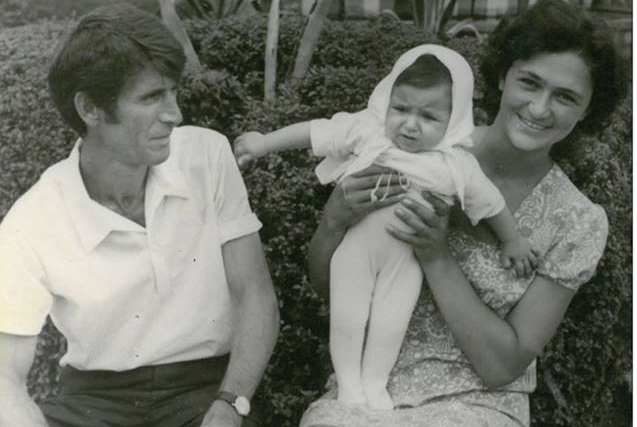
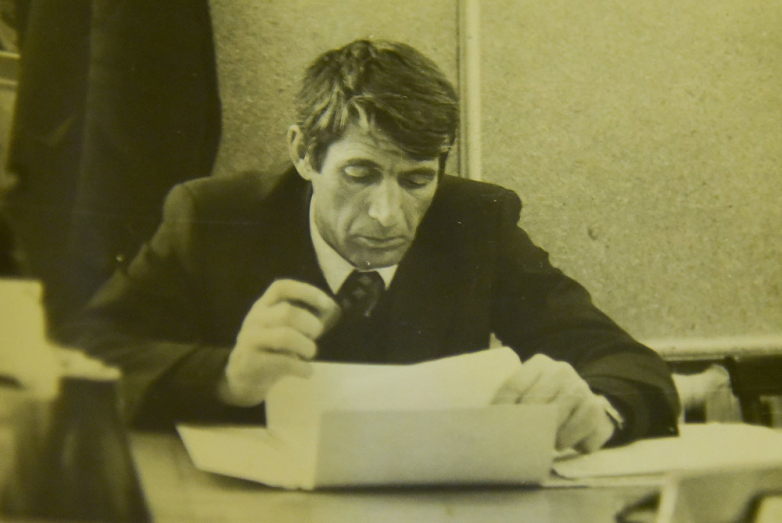
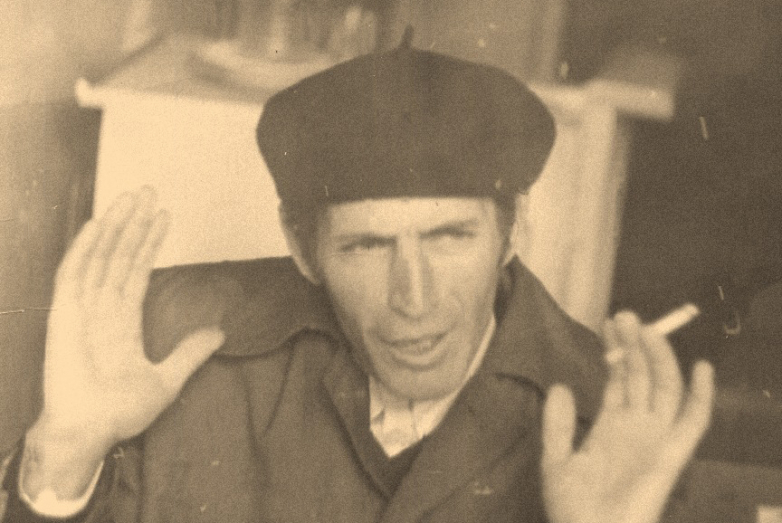
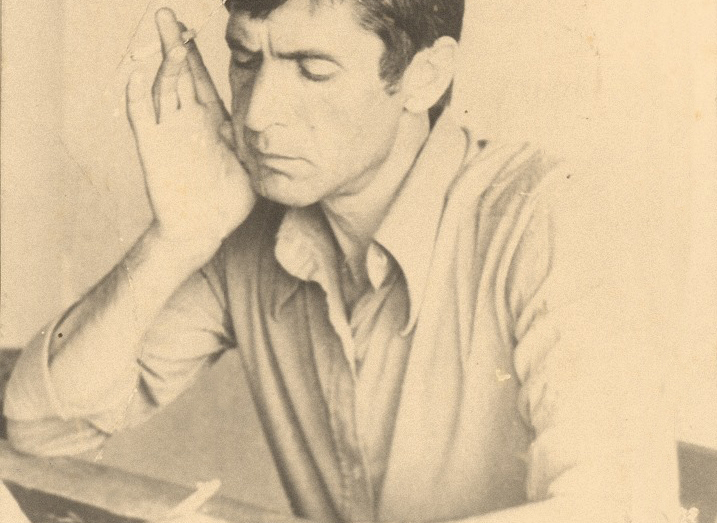
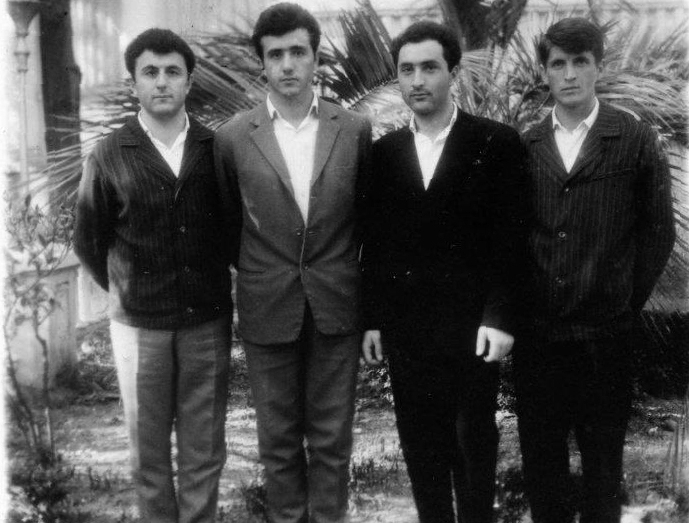
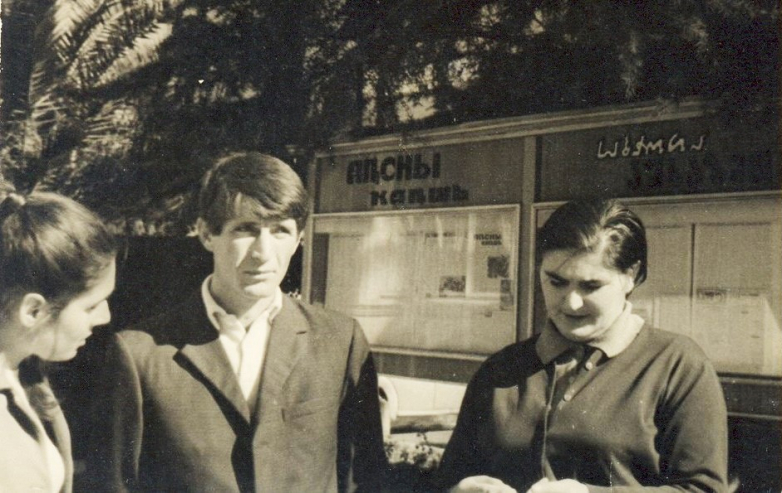
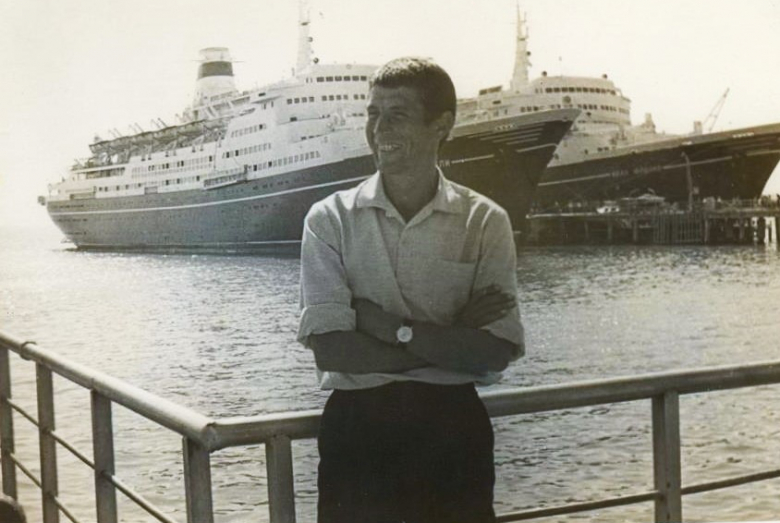
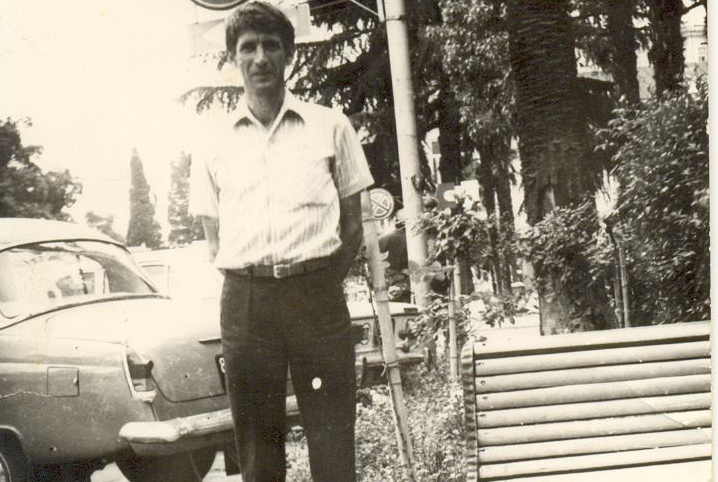
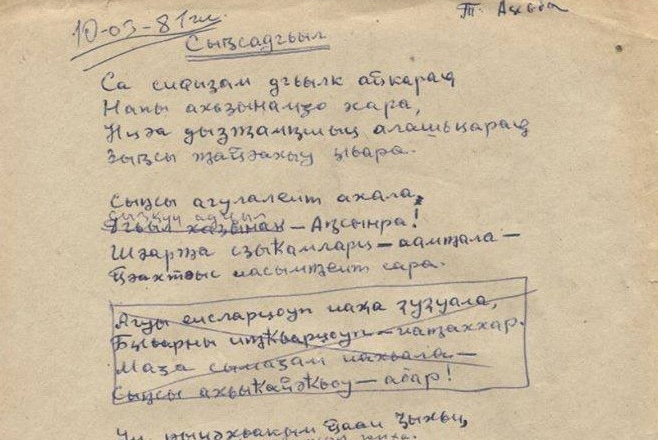
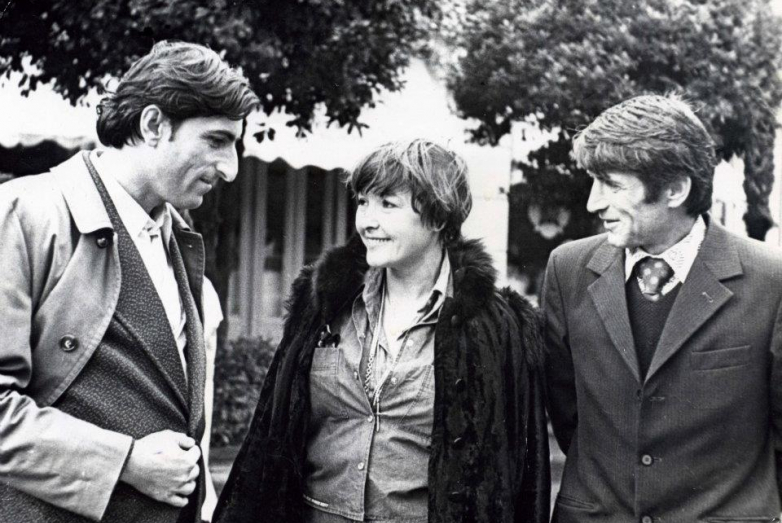
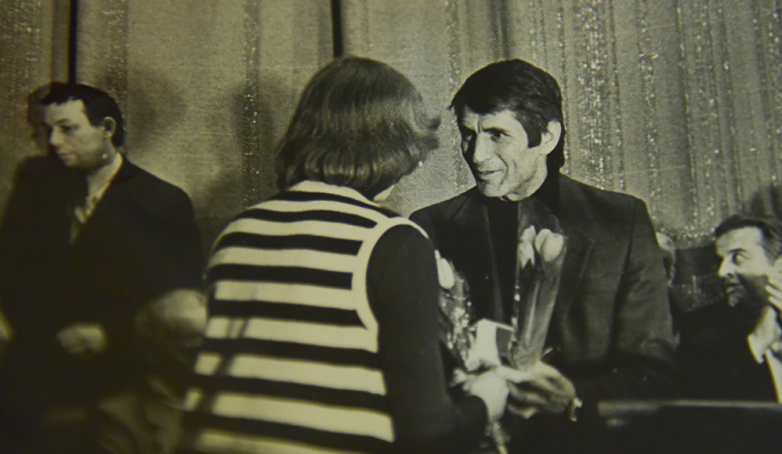
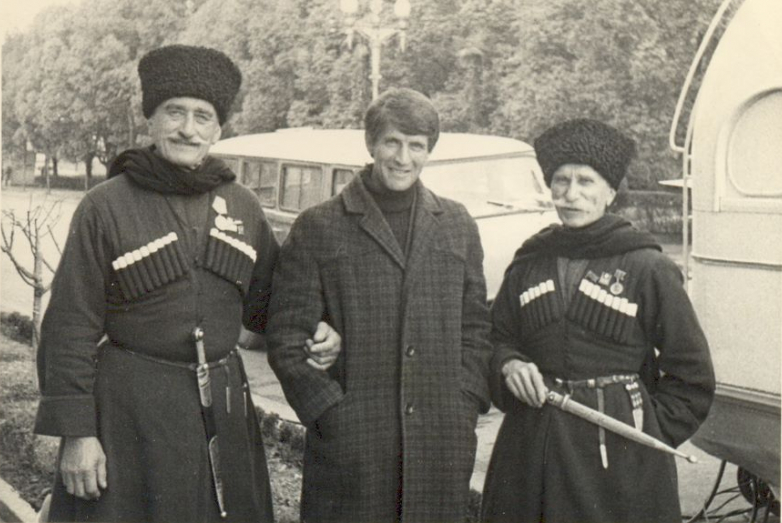

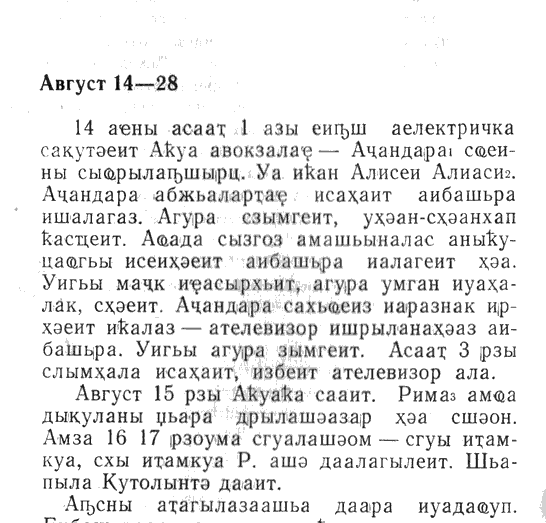
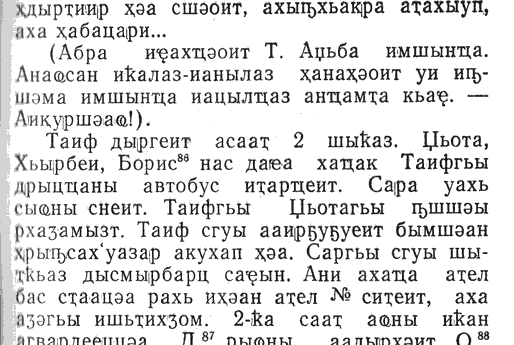
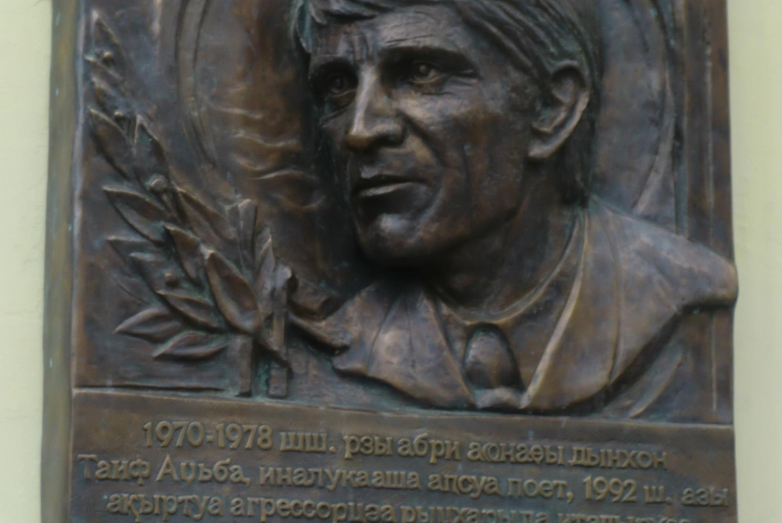
to login or register.